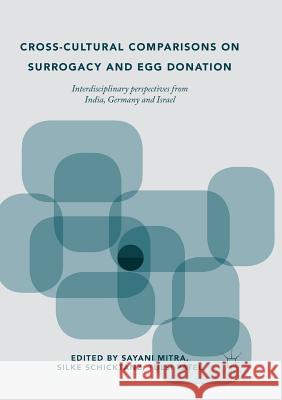Cross-Cultural Comparisons on Surrogacy and Egg Donation: Interdisciplinary Perspectives from India, Germany and Israel » książka
topmenu
Cross-Cultural Comparisons on Surrogacy and Egg Donation: Interdisciplinary Perspectives from India, Germany and Israel
ISBN-13: 9783030087609 / Angielski / Miękka / 2018 / 399 str.
Cross-Cultural Comparisons on Surrogacy and Egg Donation: Interdisciplinary Perspectives from India, Germany and Israel
ISBN-13: 9783030087609 / Angielski / Miękka / 2018 / 399 str.
cena 385,52 zł
(netto: 367,16 VAT: 5%)
Najniższa cena z 30 dni: 382,84 zł
(netto: 367,16 VAT: 5%)
Najniższa cena z 30 dni: 382,84 zł
Termin realizacji zamówienia:
ok. 20 dni roboczych.
ok. 20 dni roboczych.
Darmowa dostawa!
Kategorie:
Kategorie BISAC:
Wydawca:
Palgrave MacMillan
Język:
Angielski
ISBN-13:
9783030087609
Rok wydania:
2018
Dostępne języki:
Ilość stron:
399
Waga:
0.49 kg
Wymiary:
21.01 x 14.81 x 2.16
Oprawa:
Miękka
Dodatkowe informacje:
Wydanie ilustrowane











